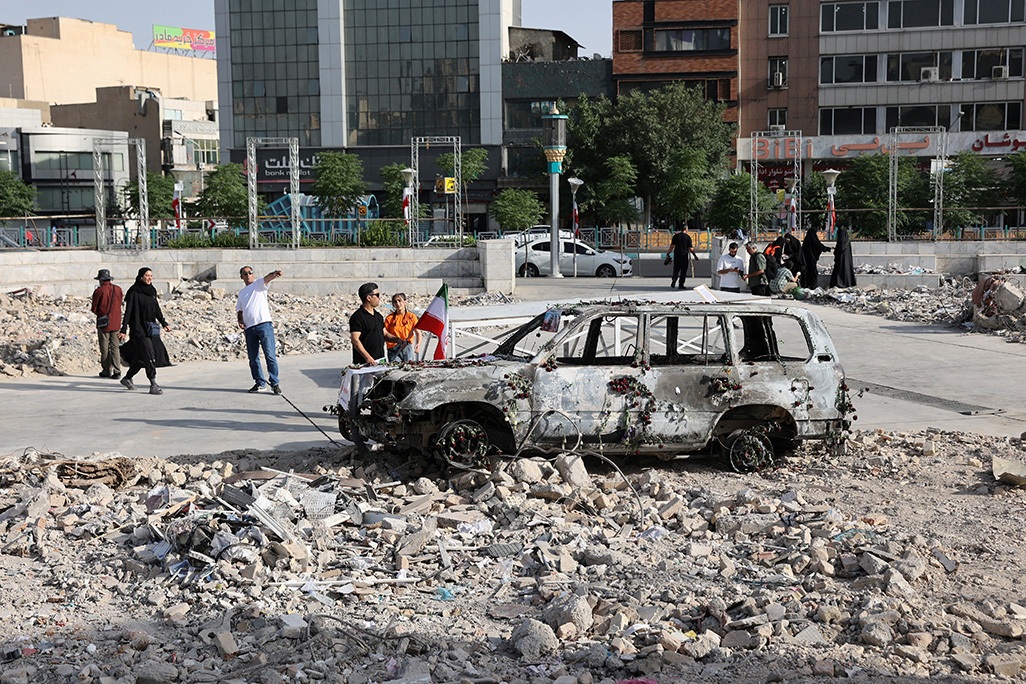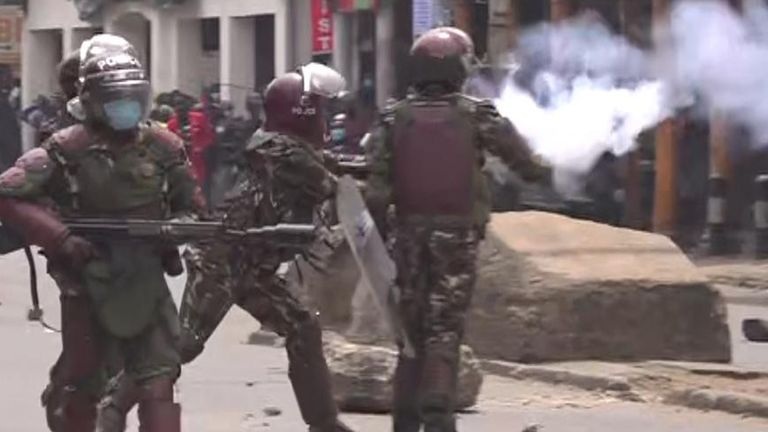News
JUST IN: Iran Blasts Rattle Ceasefire as Israel Defies Trump’s Warning

Despite U.S. President Donald Trump’s announcement that Israel had aborted airstrikes to preserve a newly declared ceasefire, explosions reverberated through Tehran on Tuesday, June 24, 2025, underscoring the fragility of the truce and the escalating geopolitical stakes.
Midnight Blasts in the Capital
Two powerful explosions rocked Tehran overnight, according to eyewitness accounts, even as Israeli army radio confirmed the destruction of a radar installation on the city’s outskirts.
Meanwhile, northern Babolsar also witnessed air-defense activity, with local media reporting missile intercepts in that region .
Israel Claims Final Strike After Trump’s Call
Israeli Prime Minister Benjamin Netanyahu’s office confirmed the attack on the radar site in Tehran occurred after Trump’s entreaty to halt military action.
The statement stressed that while further strikes have been suspended, the radar installation—deemed crucial to Iran’s air surveillance network—had been destroyed.
Trump Orders ‘Friendly Plane Wave’ to Iran
On his en route to the NATO summit in The Hague, Trump took to Truth Social, declaring:
“All planes will turn around and head home, while doing a friendly ‘Plane Wave’ to Iran.
“Nobody will be hurt, the Ceasefire is in effect!”
Earlier, he warned: “Israel. Do not drop those bombs.
“If you do it’s a major violation.
“Bring your pilots home, now!”.
He later expressed frustration, stating he was unhappy with both Iran and Israel for failing to fully respect the ceasefire.
Trump expressed disappointment particularly aimed at Israel, which “unloaded” after the agreement.
Netanyahu’s ‘Sign of Defiance’
According to Sultan Barakat, a public policy expert at Hamad Bin Khalifa University, Israel’s delayed radar strike was a deliberate display of sovereignty and resolve, signaling to Trump and global observers that “Israel first.”
He described the move as a “sign of defiance,” intended to reaffirm the nation’s defense posture.
Ceasefire Unravels Amid Mixed Signals
Trump and Netanyahu held another phone call following his ceasefire declaration, but the situation remains unstable.
While the White House emphasized Israel’s compliance, Israel’s follow-up strike underscores the fragility of trust in the delicate truce.
The fear is that even small acts—like targeting a radar site—may unravel diplomatic progress at a time when global focus is fractured by the Israel‑Iran war itself.
Why Radar Sites Matter
Radar systems are central to early-warning networks, particularly for intercepting missiles and drones.
Iran’s radar infrastructure is essential to defending Tehran’s airspace.
Israel views degrading that capacity as crucial to diminishing Iran’s aerial threat.
Although such strikes escalate tensions sharply and may signal deeper conflict intentions
Regional Implications
The engagement highlights a broader pattern of precision strikes targeting air-defense and surveillance systems across the region, further destabilizing already tense power balances
The US faces mounting pressure to balance its tightrope diplomacy, supporting Israel’s right to defend itself while maintaining its brokered ceasefire credibility.
With the Israel-Iran conflict dominating headlines, global mediation efforts grapple with diminishing control, raising fears of fragmentation in traditional diplomatic frameworks.
Diplomatic Chess in the Dark
Trump’s extraordinary public outburst, laced with profanity, aimed to rein in Israeli military momentum.
It signalled U.S. willingness to insert itself directly into allied decision-making.
His framing of a “friendly plane wave” underscores a delicate balancing act: assertive pressure without direct confrontation.
For Israel, the radar strike sent a clear warning: sovereignty and national security exceed external pressure.
For Iran, the explosions reinforced a narrative of vulnerability and provocative escalation.
Amid these volatile dynamics, global powers are scrambling:
European leaders at NATO are voicing renewed concern over asymmetric warfare tactics and the difficulty of enforcing ceasefires amid mixed messages.
Regional players, particularly Gulf states, are recalculating their diplomatic positions as Iran’s air defenses are breached, raising questions about sustained stability.
What’s Next: Fragile Calm or Flashpoint?
Analysts emphasize that without transparent verification mechanisms and real-time diplomacy, the ceasefire remains at risk.
Even isolated strikes, like the radar site attack, could unravel peace efforts entirely.
Verification: Independent monitors may need to be deployed to ensure compliance.
Diplomacy: Urgent back-channel talks remain essential to prevent further escalations.
Strategy: Both sides must weigh the tactical benefit of strikes against the broader risk of regional conflagration.
In essence: Tehran’s explosions underscore a critical dilemma, can ceasefires rooted in fragile trust sustain against the imperatives of national defense?
As global leaders look on, the delicate truce between Iran and Israel hangs in the balance, vulnerable to the next strike, or the next phone call.
For Diaspora Digital Media Updates click on Whatsapp, or Telegram. For eyewitness accounts/ reports/ articles, write to: citizenreports@diasporadigitalmedia.com. Follow us on X (Fomerly Twitter) or Facebook












